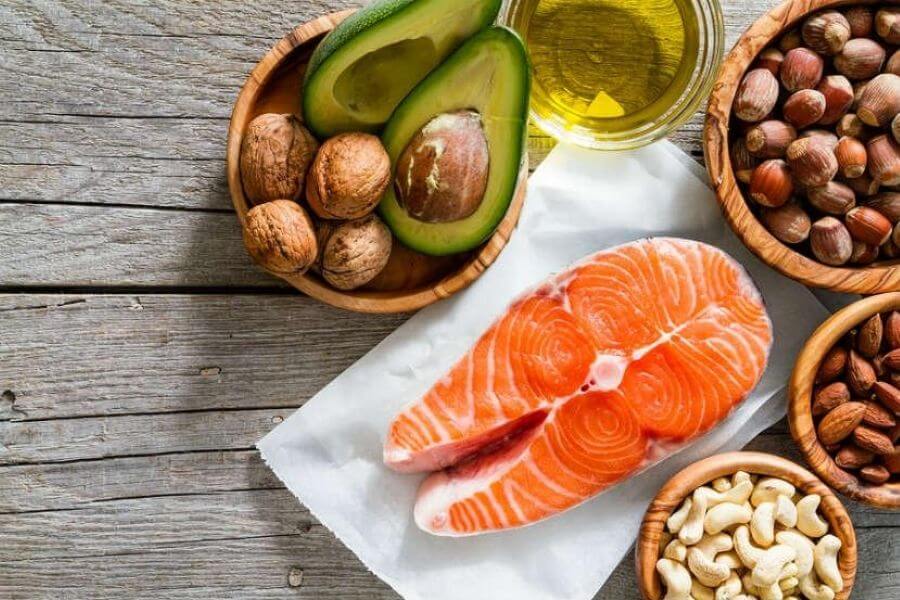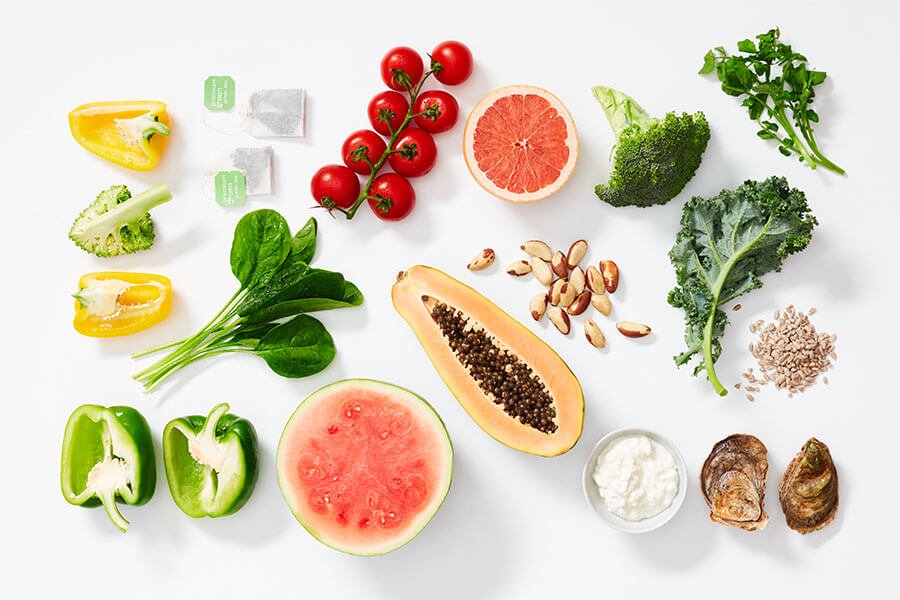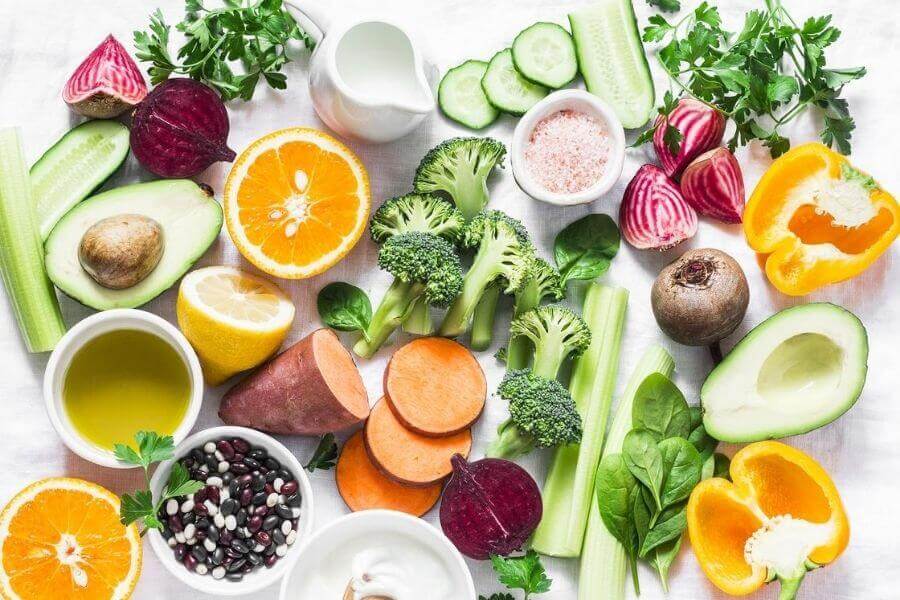Depression is a mental health disorder that is associated with overwhelming feelings of sadness, hopelessness, and despair. Depression also interferes with a person’s day-to-day life and ability to work, study, sleep, eat, and enjoy any activity. Depression is caused by a combination of biological, psychological, and social factors. Factors like genetic vulnerability, severe life stressors, some medications, or alcohol and drugs also cause mental health disorders like depression.
Poor diet also plays an important role in depression as bad foods use the mood-uplifting Vitamin B and also supply very little nutrition to your body and mind. What we eat has an impact on the structure and function of our brain. Foods like sugar can worsen depression. Therefore, it’s important to maintain a healthy diet for a healthy mind.
No specific diet is given to treat mental health disorders like depression but you can add some foods and fewer others to reduce the risk of depression. Further, you will know about some foods that might beat depression and nutrition which are beneficial to lower the risk of depression and its symptoms like anxiety.
Poor Diet And Depression
Nutrition and mental health can be related. Studies show that people with poor diets and low nutritional diets are likely to have symptoms of depression and anxiety. Bad foods like sugar, processed food, and many kor junk food can higher the risk of depression.
People with depression should consult nutritional psychiatry which is a specialist in mind and food relations. They will guide you for a healthy diet and lifestyle to avoid and prevent depression symptoms. Having a healthy diet for 12 weeks can give you wonderful results in treating depression and uplifting your mood and interest in life.
10 Foods That Help You Beat Depression
Following specific diets hasn’t yet been proven to treat depression. But there are some foods that can ease symptoms of depression and lift up your mood instantly. Maintaining a healthy diet can play a crucial part in treating your depression. Try to add the below-mentioned foods to your diet to maintain a healthy mind.
1. Omega 3

Consuming Omega 3 can enhance the function of the brain and preserve the myelin sheath. Myelin sheath protects the nerve cells. Therefore, Omega 3 is a good option for reducing the risk of mood disorders and brain diseases like depression. Fish such as salmon, sardine, tuna, and mackerel are great sources of omega-3. Flaxseed, flaxseed oil, chia seeds, and walnuts are also good sources of omega-3.
2. Antioxidants

Waste products of the natural body processes known as radicals are removed by the antioxidants. When these radicals are not removed from the body oxidative stress is developed which results in anxiety and depression. So consuming the vitamins which provided during accidents will help you to reduce the symptoms of anxiety and depression. Vitamins A, C, and E contain antioxidants.
Good sources of antioxidants are fresh plant-based foods such as berries. To reduce the stress or the symptoms of depression, try a diet that is rich in fresh fruits vegetables, and other plant-based products.
3. Selenium

Selenium and bad mood are linked to each other. Lower levels of selenium in the diet can cause anxiety, depression, and tiredness. 55 mg amount of selenium should be consumed by adults on a daily basis. Beans, legumes, lean meat, low-fat dairy products, nuts, seafood, and wholegrain are great sources of selenium which if involved in diet can help you maintain the level of selenium and reduce the risk of depression.
4. Vitamin B

Vitamin B helps you to reduce the risk and the symptoms of depression. Vitamins B12 and B9 that are folate and folic acid maintain and protect your nervous system. Egg, meat, poultry, fish, oysters, and milk are good sources of vitamin B12. Foods such as dark leafy vegetables, fruits, nuts, beans, whole grain, dairy products, meat and poultry, seafood, and eggs are great sources of folate.
5. Vitamin D

Low levels of Vitamin D can increase the risk of depression. Vitamin D receptors are present throughout the body and brain. Studies show people with depression when balanced Vitamin D levels in their bodies get better and ease the symptoms of depression.
6. Proteins

Proteins help the body to grow and repair. Proteins can also help with depression. The “feel-good” hormone is serotonin which is created by the tryptophan protein. Serotonin plays an important role in depression. Consuming foods that can boost the level of serotonin may help you to treat depression and feel good. Tuna, turkey, eggs, and chickpeas are great sources of tryptophan protein.
7. Zinc

Zinc boosts the immune system and influences depression too. People with depression may have a zinc level lower than the other people. Zinc has anti-depressant properties that work wonders for depression. Zinc is present in whole-grain oysters, beef, chicken, pork, beans, nuts, and pumpkin seeds.
8. Carbohydrates

Carbohydrates and mood are linked. Craving for carbs is due to low levels of serotonin. Smart carbs have calming effects on the brain as carbohydrates boost brain chemicals and serotonin. Choosing the correct carbs is important. Choose complex or smart carbs like whole grains instead of cake and cookies which are simple carbs. Fruits, vegetables, and legumes also have healthy carbs.
9. Mediterranean Diet

The Mediterranean diet emphasizes healthy fats. Following the Mediterranean diet for 12 weeks can treat depression and ease the symptoms according to researchers. By following the Mediterranean diet and lifestyle can reduce the risk of depression. The Mediterranean diet contains high-level omega 3. Foods like fresh fruits and vegetables, protein-rich legumes, fatty fish, and olive oil are consumed in the Mediterranean diet.
10. DASH Diet

DASH diet focuses on reducing sugar. Basically, the DASH diet is a Dietary Approaches To Stop Hypertension diet. It helps in lowering blood pressure. People who consume high amounts of sugar are most likely to have depression. DASH diet focuses on reducing the sugar intake which will help you to lower the risk of depression.
Conclusion
Studies show gut health plays an important role in anxiety. Eating healthy food is a great way of self-care. Eating healthy can also increase motivation. If you have depression the first of you should be to get help from a mental health professional or nutritional psychiatrist. There is no specific treatment for depression that works for all. But trying good eating habits, physical activities like exercise, good sleep, and avoiding bad foods and alcohol and drugs can help you to beat depression.
Obese people are most likely to have depression problems. Depression can lead to obesity and changes in the immune system and hormones. Therefore, diet plays an important role in depression. Doctors mostly recommend having a healthy and mindful diet. Try avoiding processed food, sugar, refined food, junk food, alcohol, and drugs. Instead, provide your body and mind the nutrition of fresh vegetables and fruits and healthy fats which will help to improve the symptoms of depression.
Other than a healthy diet, maintain a healthy lifestyle by including exercise or yoga, a good 7-8 hrs of sleep daily, and spending some time outside in nature. A healthy lifestyle helps in anxiety and lifting up the mood.
Read also – 10 Foods with Sugar You Must Avoid







